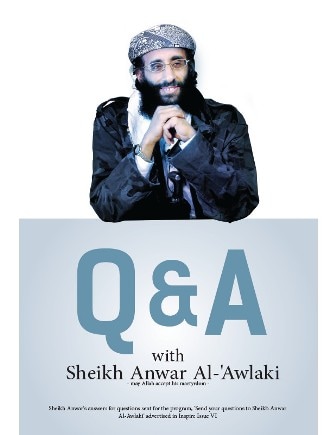This report is offered as a complimentary sample from MEMRI's Jihad and Terrorism Threat Monitor (JTTM); to subscribe to the JTTM, visit http://www.memri.org/legacy/jttm/subscription or contact us at jttm@memri.org. To read future reports you must be a full member of the JTTM.
Note to media and government: For a full copy of the magazine, send an email with the title of the report in the subject line to media@memri.org. Please include your name, title, and organization in your email.
MEMRI will be releasing more reports about Inspire XII soon.
On March 14, 2014, Al-Qaeda in the Arabian Peninsula (AQAP) released the 12th issue of its English-language magazine Inspire. The current issue focuses primarily on incitement urging attacks on the U.S. and its citizens and on other western countries, and on virulent anti-U.S. propaganda. As in previous issues, AQAP uses Inspire to exhort Muslims living in the West to undertake the task of jihad and carry out lone-wolf attacks on targets in their countries.
For further coverage of the issue and full texts of main items from it see:
The following are some observations on the current issue:
SUPPORT OUR WORK


Calls For Lone-Wolf Jihad In The West
In its effort to convince Western Muslims to carry out lone-wolf attacks, AQAP highlights the impact these attacks have on the U.S. and provides would-be recruits with practical information and advice, including detailed, illustrated instructions for building a car bomb, and a list of recommended targets. Throughout the magazine AQAP also provides would-be attackers with religious, ideological and moral justification for such attacks. Citing the deceased Anwar Al-Awlaki, who was one of AQAP's main recruiters of Western operatives, the organization calls for and justifies attacks on civilian targets to produce the greatest possible impact and damage. The magazine quotes an email exchange between Al-Awlaki and one of his followers in the West, in which the former wrote: "...If you ask me as a tactic, is targeting the civilian population of the West a good thing to do? I would say yes, because it is much more potent and powerful… when you hit the civilian you hit them where it hurts most and that is what our tactics are about." Al-Awlaki even sanctioned the killing of women and children: "When men, women and children are mixed and integrated such as in a city or village there is no doubt that it is allowed to target them while carrying the intentions of not specifically targeting the women and children. Therefore, an attack on a population center such as a US, British, French or German city with a bomb or a firearm attack is definitely allowed."
The magazine's "Open Source Jihad" section provides an illustrated guide for constructing a car bomb, and a list of potential targets. In the U.S., it especially recommends hitting Washington DC, New York city, northern Virginia, Chicago and Los Angeles. It recommends targeting crowded areas and popular sporting events, such as the U.S. open tennis tournament. It stresses that "America is our first target," but also presents a list of targets in the U.K. and France.

Propaganda
Another recurrent theme in the issue is AQAP's propaganda. The boasts that despite U.S. efforts, it has managed to survive and grow and to inflict damage on its enemies, primarily the U.S. itself. The issue's lead article, written by one Abu Abdillah Almoravid, seeks to paint a picture of a U.S. in decline thanks first and foremost to Al-Qaeda's efforts. Almoravid highlights the U.S's financial woes, its debt, its failure in the wars in Iraq and Afghanistan, and even the phenomenon of mass shootings to prove this point.
A piece authored by AQAP's top cleric, Ibrahim Al-Rubaish, says that the U.S. drone campaign is failing to defeat the jihad fighters, and boasts that "the unmanned drone [attaks] propel the jihad against the crusaders."
Another article features an imaginary interview with president Obama. The questions invented by the magazine and the answers taken from a speech by Obama on the U.S. drone attack policy.
A writer calling himself Nasr Al-Anisi speaks of the future decline of the U.S., and addresses the American people, saying: "I augur badly for you. A terrifying dark future awaits you, a moment of revenge not only from the Muslims but also from many enemies, some you may not know and some you may have forgotten, but they will never forget you."
Yet another article presents a summary of a recent hearing in the U.S. House of Representatives Subcommittee on Counterterrorism and Intelligence on the threat AQAP poses to the U.S. The piece seeks to prove that the U.S. itself sees AQAP as a substantial threat.
No Mention Of Current Events In The Middle East
A notable feature of this issue of Inspire is the total absence of any mention of current events in the Middle East, especially the events rocking Al-Qaeda and its satellite groups. None of the momentous developments that have occurred in the Arab countries since the publication of the last issue, in May 2013, are mentioned, including the ongoing civil war in Syria, the overthrow of the Muslim Brotherhood government in Egypt, the instability in Tunisia and Libya, and the situation in the Gulf or Yemen itself. Even more significantly, the issue is silent about the internal fighting among the jihad groups in Syria, which in recent months has caused a rift in the global jihad movement and has dominated the jihadi discourse. All these topics are neglected in favor of self-aggrandizing propaganda and incitement to carry out attacks in the West – creating a conspicuous discrepancy between Inspire's rhetoric and that of the rest of the jihad community.
This fact raises questions about the identity of the people behind the magazine, and their geographical location. One would expect activists located in the Middle East to be preoccupied with the rift in the jihad movement there, rather than focused solely on the West.





